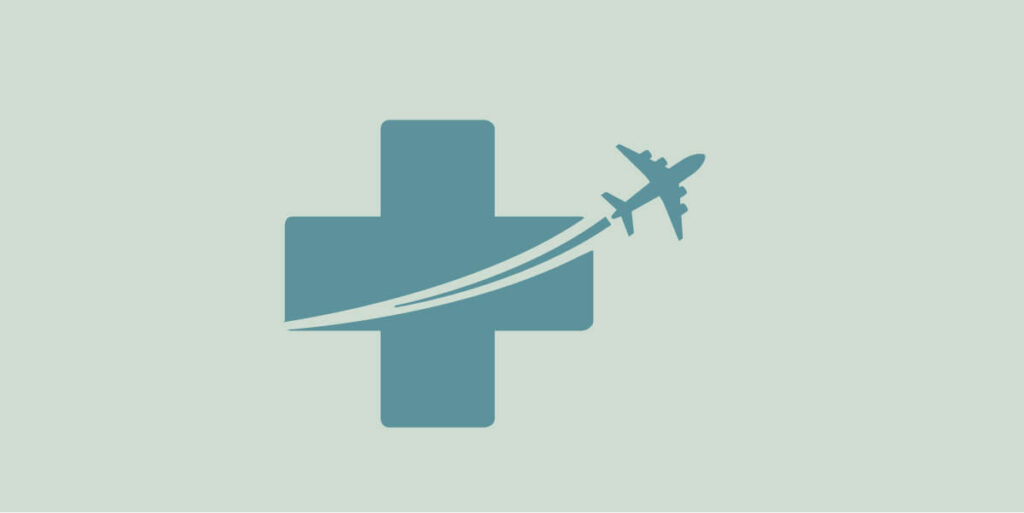USEFUL INFORMATION FOR PATIENTS
Home » For patients » Medical tourism
Medical tourism
Medical tourism is a branch of tourism that relates to the provision of health services to people who decide that the necessary or desired medical treatment is performed in another country that can provide them with equally good conditions at low-cost treatment.
Previously, people traveled from less developed countries to major medical centers in highly developed countries for treatment that was not available at home. However, in recent years, medical tourism can equally apply to those who from developed countries travel to developing countries for a cure. Motivation may also be related to medical services that are not available in the home country.
What really puts the term “tourism” into the concept of medical tourism is the possibility of staying abroad after a medical procedure as well as getting to know the culture of the chosen country.
when medical tourism is concerned, almost all kinds of health care, including all branches of medicine, are available from preventive treatment to rehabilitation forms of travel.
As serbia is also well positioned in this sphere, foreigners are increasingly visiting our country because health services are at an equally high level as in other countries, but prices are much lower.
History of medical tourism
The first recorded cases of people who travel for treatment are somewhere old for thousands of years. These are the situations in which greek pilgrims traveled from the eastern mediterranean to a small area in the saronic gulf called epiduria. This territory was the sanctuary of the god of all medicinal asklepios.
Spa centers and sanatoria were early forms of medical tourism.
As early as the fifteenth century, patients from europe visited the spa because they were (and remained) places with supposedly healthy mineral waters. Treatments are treated here from ordinary leukemia to liver and bronchitis disorders.
Costs in medical tourism
For an individual interested in health services, the cost is a key factor in the decision to provide health care abroad.
More and more countries around the world are beginning to see financial benefits from this emerging market, offering superior medical services at significantly lower prices.
The main reason why clinics and hospitals in developing countries have the ability to lower prices are directly related to the economic status of the nation. As a result, operating prices are between 30% and 70% lower in countries that promote medical tourism compared to some other countries.
Quality as a factor for medical tourism
There are two main components of the quality of services in the health sector – technical and functional quality. Technical equipment is the core of patient diagnostics while functional quality measure services offered in health centers (such as staff, nursing, and, more importantly, doctors for patients and their assistants). The quality of services in the medical tourism industry is vital to attracting customers.

One of the main obstacles to the acceptance of medical tourism is the lack of information about the quality of provision of medical services outside of their country. The key to overcoming is the engagement of adequate and professional companies that can guide the patient in equally good or even better treatment than in his own country as well as yes offers institutions that are internationally recognized through accreditation. Such accreditation is key to strengthening trust in the quality of health care.
This trust can be even stronger if accreditation is accompanied by links with reputable hospitals or health care systems in industrialized countries. When healthcare providers are accredited and become part of international networks, they can be adequately assessed for risks.
Types of treatment
The categories of different treatments and their availability are also an important factor in the decision to engage in medical tourism. The most common types of procedures that patients accompany while traveling to medical tourism are elective cosmetic surgery, dentistry, organ transplantation, cardiac surgery, and orthopedic surgery.
However, a wide range of services can be obtained through medical tourism, from various essential treatments to various types of traditional and alternative treatments. Reproductive tourism and reproductive outsourcing are growing in popularity, which is the practice of traveling overseas for engaging in surrogate pregnancy, in vitro fertilization, and other methods of auxiliary reproductive technology.
In addition to costs, access is also the second major factor responsible for increasing medical tourism. Lack of this, either because of the inaccessibility of technology or the ban in the home country, can later lead to medical tourism. Common examples are cytoplasmic transfer or stem cell therapy.
Atlas consulting company is able to organize all types of medical services in the republic of serbia, whose quality equally corresponds to the treatment abroad for all patients. But we are also able to provide a complete organization and treatment outside our country for all citizens of the republic of serbia who need treatment that can not be done in our country (for example, outpatient fertilization with the donor egg cell).
